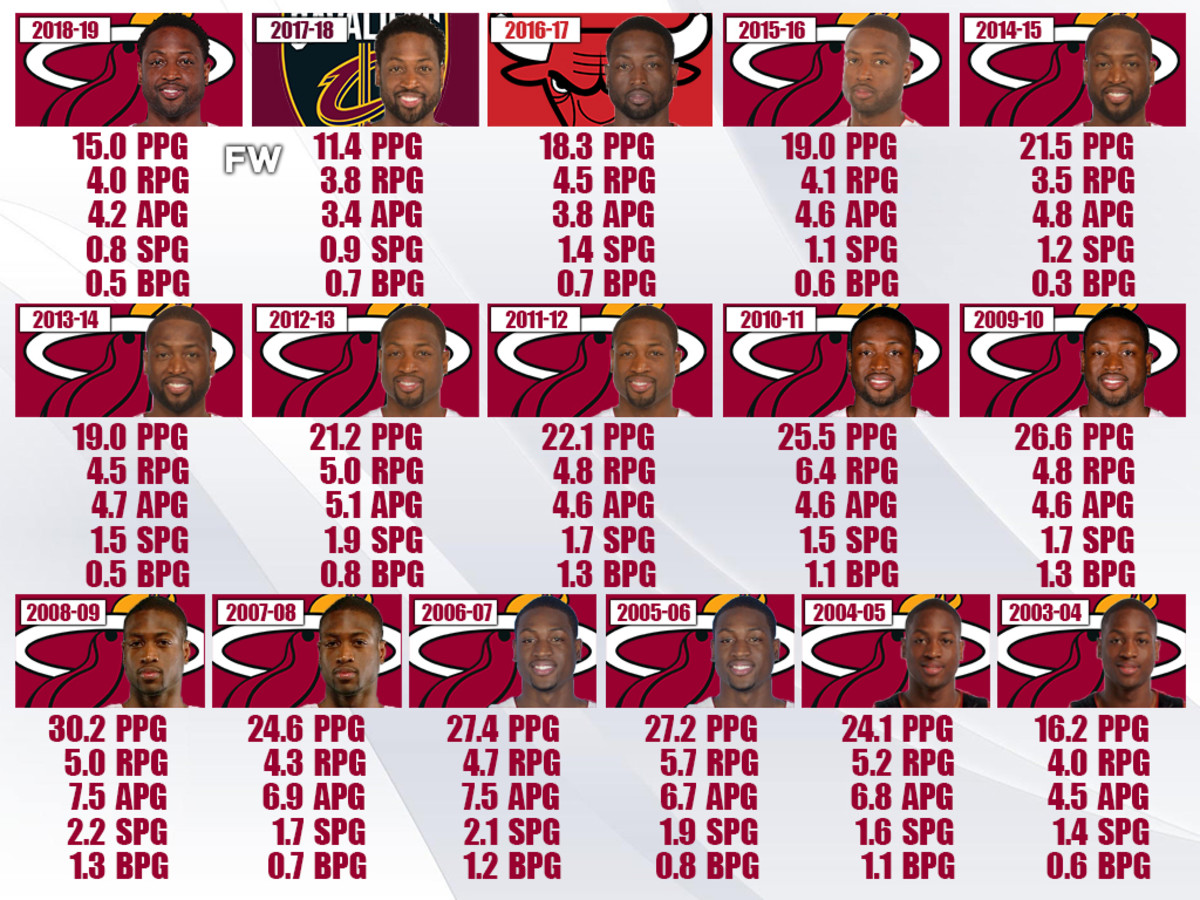Is Dwyane Wade, the electrifying shooting guard, a true legend whose impact transcends mere statistics? His playoff performance, a compelling narrative of clutch plays and championship triumphs, firmly establishes him as one of basketball's all-time greats.
Born on January 17, 1982, in Chicago, Illinois, Dwyane Tyrone Wade Jr., known to the world as Dwyane Wade, is more than just a name; he's a symbol of resilience, skill, and unwavering dedication to the game of basketball. His journey from the playgrounds of Chicago to the heights of NBA stardom is a testament to his relentless pursuit of excellence. Wade's career, a dazzling display of athleticism and basketball IQ, has left an indelible mark on the sport, making him a subject of admiration and debate among fans and analysts alike. His influence extends beyond his on-court achievements, as he has become a cultural icon, inspiring generations with his style, charisma, and commitment to community. To understand the full scope of Wade's legacy, one must delve into his statistics, dissect his key performances, and appreciate the impact he had on the game, both on and off the court. His entrance into the Hall of Fame solidified his status, prompting a critical examination of his place among the pantheon of basketball greats. Many fans are beginning to compare him with other NBA stars, so lets dive into the full analysis.
| Category | Details |
|---|---|
| Full Name | Dwyane Tyrone Wade Jr. |
| Date of Birth | January 17, 1982 |
| Place of Birth | Chicago, Illinois, USA |
| High School | Harold L. Richards High School (Oak Lawn, Illinois) |
| College | Marquette University |
| NBA Draft | 2003, 5th overall pick by Miami Heat |
| Position | Shooting Guard / Point Guard |
| Height | 6 ft 4 in (1.93 m) |
| Weight | 220 lb (100 kg) |
| NBA Teams | Miami Heat (2003-2016, 2018-2019), Chicago Bulls (2016-2017), Cleveland Cavaliers (2017-2018) |
| Jersey Number | 3 |
| Championships | 3 (2006, 2012, 2013) |
| Finals MVP | 1 (2006) |
| All-Star Selections | 13 |
| All-NBA Selections | 8 (2x First Team, 3x Second Team, 3x Third Team) |
| All-Defensive Selections | 3 (2x Second Team, 1x First Team) |
| Scoring Champion | 1 (2008) |
| Retirement | 2019 |
| Hall of Fame | Inducted in 2023 |
| Career Points | 23,165 |
| Career Rebounds | 4,886 |
| Career Assists | 5,701 |
| Playoff Games Played | 177 |
| Playoff Points Per Game | 22.3 |
| Reference | ESPN - Dwyane Wade Stats |
Dwyane Wade's playoff journey is a compelling narrative of dominance and clutch performances. Throughout his illustrious career, he participated in 13 playoffs, competing in 177 games. In those games, he averaged a remarkable 22.3 points, 5.2 rebounds, and 4.9 assists per game. His playoff series record reflects his success, with his teams winning 22 of the 32 series he played in, a testament to his leadership and ability to elevate his game under pressure. These are not just numbers; they represent a legacy of memorable moments and a relentless drive to win. The game-by-game stats from the 2006 NBA season and playoffs, for example, highlight his consistency and ability to perform when it mattered most. His performance in the 2012 playoffs, where he averaged 22.8 points, 5.2 rebounds, and 4.3 assists in 23 games, culminated in his second NBA championship, solidifying his status as a true champion.
Examining Wade's averages against specific playoff rivals offers a deeper understanding of his impact. His performances against players like James Harden in the playoffs provide fascinating insights. In five playoff games against Harden, Wade averaged 22.6 points, 6.0 rebounds, and 5.2 assists. This illustrates his consistent ability to deliver against top-tier competition. Wade's ability to elevate his game in the playoffs, particularly when facing rivals, is a hallmark of his career. This can be seen in the basic data, including points, rebounds, assists, steals, and blocks. His game logs meticulously detail his contributions in each game. His impact in terms of points, rebounds, assists, steals, and blocks showcases his all-around game.
To truly appreciate Wade's career, it's essential to consider his overall statistical achievements. He averaged 22.3 points, 5.2 rebounds, and 4.9 assists in his playoff career, figures that highlight his impact as a scorer, rebounder, and playmaker. These numbers paint a vivid picture of a player who consistently performed at a high level when the stakes were highest. Considering his career stats and his playoff performance, including his field goal percentage (FG%), 3-point percentage (3P%), and free throw percentage (FT%), it is clear that Wade was not just a scorer; he was also efficient. While his career statistics reveal a player who could dominate offensively, it's essential to also consider the context of his era and the evolution of the game. His effective field goal rate of 49.5% and the 3,326 turnovers and 2,328 fouls serve as a reminder of the physical and competitive nature of the sport. The analysis of his statistics provides a clear indication of his impact as a high-volume scorer and playmaker. His ability to perform at a high level, both in the regular season and playoffs, highlights his consistency and his impact on the game.
Wade's influence on the game also extends to his role as a mentor. His influence extended to players like LeBron James, with whom he formed a formidable partnership. This period, filled with championships, highlights their combined impact. LeBron James' additional seasons in the NBA, playing from 2020 to 2025, saw him in 4 playoff appearances, winning one NBA championship and one NBA Cup. This contrasts with Wade's career, which concluded with three championships and a Finals MVP award. The comparison between these two players, both top talents, sheds light on different aspects of leadership and success. Jamess longevity and statistical dominance are undeniable, but Wade's impact on Miami Heat, particularly in the early years, and his clutch performances, cemented his place as a leader and an icon.
The debate over Wade versus other NBA stars is a frequent topic among fans. The comparison with players like James Harden underscores the challenges of ranking players across different eras. Both Wade and Harden are considered elite shooting guards. The comparison involves their playing styles, statistical profiles, and postseason achievements. Wade, with his Hall of Fame induction, now provides a clear benchmark for evaluating his legacy compared to his peers. When evaluating great NBA players, several factors contribute to their overall impact. Statistical achievements, such as points, rebounds, and assists, are crucial but do not tell the whole story. The ability to lead a team, perform in clutch moments, and impact the game beyond the box score are equally important. Wade's averages for every series he played in the NBA playoffs highlight his influence against every playoff rival, including how many series he played, won, and lost. These figures emphasize his consistency and impact. This comparison explores the different ways in which players leave their mark on the game, whether through individual brilliance or collective team success.
The game logs provide a detailed look at his regular season and postseason performance, highlighting his ability to dominate games. The "Dwyane Wade Playoffs Game Logs" are detailed, showcasing his contributions in each game. These logs include the date, team, opponent, win/loss status, position, minutes played, points scored, field goals made and attempted, field goal percentage, three-pointers made and attempted, three-point percentage, free throws made and attempted, free throw percentage, offensive and defensive rebounds, total rebounds, and assists. The information available from ESPN's complete career NBA stats provides a detailed understanding of his achievements, including points, rebounds, and assists. Additionally, considering Wade's overall statistical achievements, it is clear that he has cemented his place as one of the most impactful players in the history of the sport.


